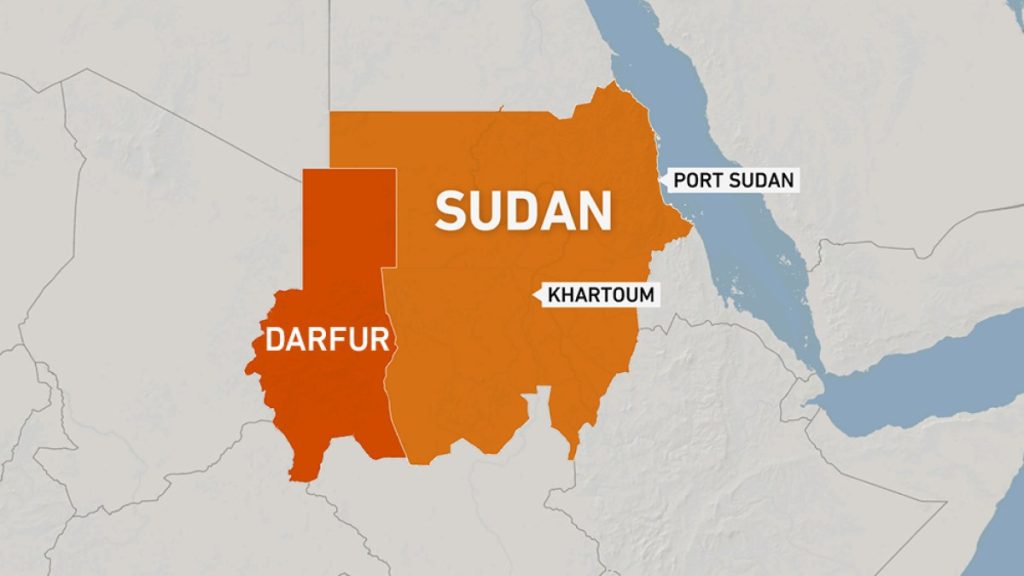The ongoing conflict in Sudan between the Sudanese army and the paramilitary Rapid Support Forces (RSF) has escalated, marked by a series of devastating attacks that have inflicted a heavy toll on civilians. The recent attack on the Saudi hospital in el-Fasher, the last functioning hospital in the city, underscores the deepening humanitarian crisis. The RSF has been blamed for the attack, which involved the firing of rocket-propelled grenades, resulting in the deaths of at least nine people and injuries to twenty others. This attack on a vital medical facility has deprived the city of crucial healthcare services, further exacerbating the suffering of the population caught in the crossfire. The city of el-Fasher, a significant hub for humanitarian operations by international aid agencies including the United Nations, has become a battleground since May 10, disrupting aid delivery and placing countless lives at risk.
The attack on el-Fasher’s hospital is not an isolated incident but part of a broader pattern of escalating violence engulfing the region. A particularly horrific incident occurred on Monday in Kabkabiya, a town approximately 180km from el-Fasher, where an air strike on an open-air market resulted in the deaths of over 100 civilians, including women and children. Human rights organizations have vehemently condemned this attack, labeling it a war crime due to its indiscriminate targeting of civilians. The market, a central gathering point for the community, transformed into a scene of carnage, highlighting the devastating consequences of the ongoing conflict. This incident has underscored the vulnerability of civilians and the urgent need for international intervention to protect them from further harm.
The violence continued on Tuesday with the RSF shelling the Zamzam displacement camp in North Darfur, resulting in the deaths of five people. This attack on a camp specifically designated for displaced individuals highlights the callous disregard for civilian lives and the deliberate targeting of vulnerable populations. These displacement camps, meant to provide refuge from the conflict, have ironically become targets, further compounding the displacement crisis and adding to the immense suffering of those already uprooted from their homes. The escalating violence has trapped numerous civilians in a cycle of displacement and insecurity, making access to basic necessities like food, water, and shelter extremely precarious.
Beyond Darfur, the conflict continues to rage across Sudan. On Tuesday, the RSF launched an artillery attack on an army-controlled area within Omdurman, Sudan’s second-largest city, located near Khartoum. This attack resulted in the deaths of at least 65 people, demonstrating the widespread impact of the conflict and its reach beyond the Darfur region. The urban warfare in Omdurman poses significant risks to civilians trapped in the city, who are caught in the crossfire between the warring factions. The shelling of residential areas further underscores the disregard for civilian safety and the widening scope of the humanitarian crisis.
The cumulative impact of these attacks paints a grim picture of the humanitarian situation in Sudan. The United Nations estimates that over 16,000 people have been killed since the conflict began, a figure likely to be an underestimate given the challenges in accurately documenting casualties amidst the ongoing fighting. Furthermore, 10 million people have been displaced from their homes, and a staggering 25 million are in dire need of humanitarian assistance. These figures underscore the severity of the crisis and the urgent need for international action to mitigate the suffering of the Sudanese people. The displacement crisis has overwhelmed existing resources, leading to overcrowded camps with inadequate sanitation, limited access to food and water, and increased vulnerability to disease outbreaks.
The attacks on civilian infrastructure, including hospitals and markets, demonstrate a blatant disregard for international humanitarian law and the principles of protecting civilians during armed conflict. The targeting of hospitals, in particular, deprives civilians of essential medical care, exacerbating the suffering and increasing the risk of preventable deaths. The destruction of markets further restricts access to food and essential goods, compounding the already dire humanitarian situation. The international community bears the responsibility to hold those responsible for these atrocities accountable and to take decisive action to protect civilians and ensure access to essential aid. The ongoing violence in Sudan demands immediate attention and a concerted international effort to bring an end to the conflict and address the urgent humanitarian needs of the Sudanese people.

